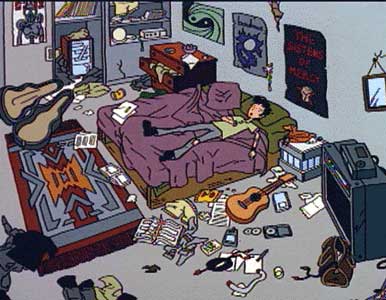
We kind of joke around here, ‘What is it like to be John Wray?’
I wish I was rich and famous; I wish I was intelligent and attractive; I wish I was witty and charming; these are, I would imagine, fairly common things to wish for, as, I would also suspect, would be: I wish I was a/an <insert your favorite literary or scientific award here> prize winner; I wish I directed the <most successful/best reviewed> movie of all time; I wish I was the <monarch/head of state> of a country of my choice. So far so good, except for the fact that I have just started feeling somewhat more inadequate than usual because I am none of the above, but we are approaching a slippery slope and things can get pretty complicated rather fast.
What is it like to truly be someone else? What would it really mean, for example, if I wished that I was Douglas Hofstadter? Humans are discrete beings with their individual discrete consciousness; we are not the Borg, or, at least, do not seem to be aware of it if we are. Actually, come to think of it, Hofstadter may not completely agree with me here, because his vision of consciousness includes the idea that each human "I" is distributed over numerous brains, rather than being limited to precisely one; however, since he has also been known to constantly stress the concrete while avoiding the abstract, he may not find a further analysis (of what my wish to be DH truly implies) to be absolutely without any merit. Do I simply want to look like him or maybe assume parts of his personality traits and achievements that I feel I lack? Because anything beyond that gets rather tricky: if I were to truly become him, would the me-that-had-wanted-this even know it or care any more? Would only the part of me that wanted this somehow be left intact (possibly to approve of and revel in this transformation), and the rest would be all him? (But in that case either the pre- or the post-metamorphosis me, I don't think it quite matters which at this point, could still split hairs and say that I had not completely become him.) And what of Hofstadter himself - if I became him, what would become of him? Maybe all we have to do is to convince him to want to be me (I understand that this would require a whole lot of convincing, but let's assume it momentarily for the sake of argument and in the interest of scientific advancement and intellectual discourse), and then we could all be happy without having to change anything at all.
In a somewhat unrelated note, what if I had multiple personalities, and one of them wished that it was one of the other ones - how would that work out? Would it be happy that it already was, or miserable that it could never be?
Note: The figure accompanying this post is a slightly modified version of a parquet deformation called "I at the Center" created by David Oleson at Carnegie-Mellon in 1964. It is one of Hofstadter's favorites, and the following is what he has to say about it in Metamagical Themas, his 1985 collection of essays originally written for the Scientific American. At the very center of a mesh is an I - an ego; touching it are other things - other I's - very much like the central I, but not quite the same and not quite as simple; then as one goes further and further out, the variety of I's multiplies. To me this symbolizes a web of human interconnections. Each of us is at the very center of our personal web, and each of us thinks, "I am the most normal, sensible, comprehensible individual." And our identity - our "shape" in personality space - springs largely from the way we are embedded in that network - which is to say, from the identities (shapes) of the people we are closest to. This means that we help to define others' identities even as they help to define our own.
